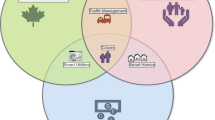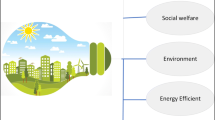Abstract
The Internet of Things (IoT) is an emerging technology that provides services to any smart device at any place. Due to the large volume of data and dynamicity, the IoT environment faces challenges in terms of overloading and energy consumption. To resolve those issues, we proposed MISSION (MobIlity taSk Scheduling OffloadiNg) method to solve these problems, and for that, we present four phases. (1). History aware handover process, in this stage we manage the mobility of IoT devices to reduce the retransmission rate. The handover is managed by 5G gateway for that we proposed Mobility Aware Proximal Policy Optimization (MAPPO) algorithm with RSS, direction, and distance parameters. (2). Multi criteria based task classification and scheduling, in this stage first the tasks are classified into four types such as real time task, non-real time task, delay sensitive task and resource intensive task and the classified tasks are given to the input for scheduling, for scheduling we consider a priority, maximum response time, size of data, task completion time and energy. Both the classification and scheduling are done by Di-Process Modular Neural Network (Di-MNN). (3). Energy aware task allocation, in this process, first we calculate the weight value of the task using First Fitness based Animal Migration Optimization (FFAMO) which considers processing time, processing cost, throughput, and energy consumption parameters. And then the weighted task is assigned to the optimal fog by using Capacity based Hungarian Assignment algorithm (CH2A) by considering the load of task, waiting time, energy consumption, and distance which allocates the task optimally. (4). Efficient task offloading on virtual fog nodes, during scheduling or task allocation the fog node gets overloaded that time virtual fog is created by the central fog node using graph entropy. Finally, simulation is done by iFogsim which evaluates the performance in terms of completion time, energy consumption, delay, response time, number of unnecessary handovers, offloading time, bandwidth utilization, and fog load and throughput.




















Similar content being viewed by others
Data availability
No data and material is taken or used in this research. The analysis results used in this paper are cited properly.
Code availability
Custom code available on request due to privacy or other restrictions.
References
Swamy, S., & Kota, S. R. (2020). An empirical study on system level aspects of internet of things (IoT). IEEE Access, 8, 188082–188134.
Paul, A., Pinjari, H., Hong, W., Seo, H., & Rho, S. (2018). fog computing-based IoT for health monitoring system. Journal of Sensors, 2018, 13864701–13864707.
Bellavista, P., Berrocal, J., Corradi, A., Das, S., Foschini, L., & Zanni, A. (2019). A survey on fog computing for the Internet of Things. Pervasive and Mobile Computing, 52, 71–99.
Thareja, C., & Singh, N. (2019). Role of fog computing in IoT-based applications.
Arivazhagan, C., & Natarajan, V. (2020). A survey on fog computing paradigms, challenges and opportunities in IoT. International Conference on Communication and Signal Processing (ICCSP), 2020, 0385–0389.
Aladwani, T. (2019). Scheduling IoT healthcare tasks in fog computing based on their importance. Procedia Computer Science, 163, 560–569.
Abdel-Basset, M., Mohamed, R., Elhoseny, M., Bashir, A., Jolfaei, A., & Kumar, N. (2020). Energy-aware marine predators algorithm for task scheduling in IoT-based fog computing applications. IEEE Transactions on Industrial Informatics, 1–1.
Arisdakessian, S., Wahab, O. A., Mourad, A., Otrok, H., & Kara, N. (2020). FoGMatch: An intelligent multi-criteria IoT-fog scheduling approach using game theory. IEEE/ACM Transactions on Networking, 28, 1779–1789.
Ali, I.M., Sallam, K.M., Moustafa, N., Chakraborty, R., Ryan, M., & Choo, K.R. (2020). An automated task scheduling model using non-dominated sorting genetic algorithm II for fog-cloud systems. IEEE Transactions on Cloud Computing, 1–1.
Alsaidy, S.A., Abbood, A.D., & Sahib, M.A. (2020). Heuristic initialization of PSO task scheduling algorithm in cloud computing. Journal of King Saud University - Computer and Information Sciences.
Attiya, I., Elaziz, M., & Xiong, S. (2020). Job scheduling in cloud computing using a modified harris hawks optimization and simulated annealing algorithm. Computational Intelligence and Neuroscience.
Ding, D., Fan, X., Zhao, Y., Kang, K., Yin, Q., & Zeng, J. (2020). Q-learning based dynamic task scheduling for energy-efficient cloud computing. Future Generation Computing System, 108, 361–371.
Nguyen, B., Binh, H. T., & Son, D. (2019). Evolutionary algorithms to optimize task scheduling problem for the IoT based bag-of-tasks application in cloud–fog computing environment. Applied Sciences, 9, 1730.
Velliangiri, S., Karthikeyan, P., Xavier, V. A., & Baswaraj, D. (2021). Hybrid electro search with genetic algorithm for task scheduling in cloud computing. Ain Shams Engineering Journal, 12(1), 631–639.
Kim, S. (2020). New application task offloading algorithms for edge, fog, and cloud computing paradigms. Wireless Communications and Mobile Computing, 8888074:1–8888074:14.
Aazam, M., Islam, S., Lone, S. T., & Abbas, A. (2020). Cloud of things (CoT): Cloud-fog-IoT task offloading for sustainable internet of things. IEEE Transactions on Sustainable Computing, 7(1), 87–98.
Al-khafajiy, M., Baker, T., Waraich, A., Al-Jumeily, D., & Hussain, A. (2018). IoT-fog optimal workload via fog offloading. IEEE/ACM International Conference on Utility and Cloud Computing Companion (UCC Companion), 2018, 359–364.
Mukherjee, M., Guo, M., Lloret, J., Iqbal, R., & Zhang, Q. (2020). Deadline-aware fair scheduling for offloaded tasks in fog computing with inter-fog dependency. IEEE Communications Letters, 24, 307–311.
Wu, Q., Ge, H., Liu, H., Fan, Q., Li, Z., & Wang, Z. (2020). A task offloading scheme in vehicular fog and cloud computing system. IEEE Access, 8, 1173–1184.
Zhang, G., Shen, F., Liu, Z., Yang, Y., Wang, K., & Zhou, M. (2019). FEMTO: Fair and energy-minimized task offloading for fog-enabled IoT networks. IEEE Internet of Things Journal, 6, 4388–4400.
Chen, Z., Hu, J., Chen, X., Hu, J., Zheng, X., & Min, G. (2020). Computation offloading and task scheduling for DNN-based applications in cloud-edge computing. IEEE Access, 8, 115537–115547.
Hussein, M. K., & Mousa, M. H. (2020). Efficient task offloading for IoT-based applications in fog computing using ant colony optimization. IEEE Access, 8, 37191–37201.
Rahbari, D., & Nickray, M. (2020). Task offloading in mobile fog computing by classification and regression tree. Peer-to-Peer Networking and Applications, 13, 104–122.
Zhao, X., & Huang, C. (2020). Microservice based computational offloading framework and cost efficient task scheduling algorithm in heterogeneous fog cloud network. IEEE Access, 8, 56680–56694.
Hazra, A., Adhikari, M., Amgoth, T., & Srirama, S. (2020). Joint computation offloading and scheduling optimization of IoT applications in fog networks. IEEE Transactions on Network Science and Engineering, 1–1.
Sun, H., Yu, H., & Fan, G. (2020). Contract-based resource sharing for time effective task scheduling in fog-cloud environment. IEEE Transactions on Network and Service Management, 17, 1040–1053.
Khaki, M., & Ghasemi, A. (2020). The impact of mobility model on handover rate in heterogeneous multi-tier wireless networks. Computer Networks, 182, 107454.
Swain, C., Sahoo, M. N., Satpathy, A., Muhammad, K., Bakshi, S., Rodrigues, J. J. P. C., & de Albuquerque, V. H. C. (2020). METO: Matching theory based efficient task offloading in IoT-fog interconnection networks. IEEE Internet of Things Journal, 1–1.
Chen, S., Zheng, Y., Lu, W., Varadarajan, V., & Wang, K. (2020). Energy-optimal dynamic computation offloading for industrial IoT in fog computing. IEEE Transactions on Green Communications and Networking, 4, 566–576.
Tuli, S., Ilager, S., Ramamohanarao, K., & Buyya, R. (2020). Dynamic scheduling for stochastic edge-cloud computing environments using A3C learning and residual recurrent neural networks. arXiv: abs/2009.02186.
Bozorgchenani, A., Disabato, S., Tarchi, D., & Roveri, M. (2020). An energy harvesting solution for computation offloading in fog computing networks. Computer Communications, 160, 577–587.
Li, X., Zang, Z., Shen, F., & Sun, Y. (2020). Task offloading scheme based on improved contract net protocol and beetle antennae search algorithm in fog computing networks. Mobile Networks and Applications.
Hussain, A., Manikanthan, S. V., Padmapriya, T., & Nagalingam, M. (2020). Genetic algorithm based adaptive offloading for improving IoT device communication efficiency. Wireless Networks, 26, 2329–2338.
Zhou, Z., Liao, H., Gu, B., Mumtaz, S., & Rodriguez, J. (2020). Resource sharing and task offloading in IoT fog computing: A contract-learning approach. IEEE Transactions on Emerging Topics in Computational Intelligence, 4, 227–240.
Adhikari, M., Mukherjee, M., & Srirama, S. (2020). DPTO: A deadline and priority-aware task offloading in fog computing framework leveraging multilevel feedback queueing. IEEE Internet of Things Journal, 7, 5773–5782.
Shahryari, O.-K., Pedram, H., Khajehvand, V., & TakhtFooladi, M. D. (2020). Energy-efficient and delay-guaranteed computation offloading for fog-based IoT networks. Computer Networks, 107511.
Abdelmoneem, R. M., Benslimane, A., & Shaaban, E. (2020). Mobility-aware task scheduling in cloud-Fog IoT-based healthcare architectures. Comput. Networks, 179, 107348.
Hosseinioun, P., Kheirabadi, M., Tabbakh, S. R., & Ghaemi, R. (2020). A new energy-aware tasks scheduling approach in fog computing using hybrid meta-heuristic algorithm. Journal of Parallel Distributed Comput., 143, 88–96.
Wang, S., Zhao, T., & Pang, S. (2020). Task scheduling algorithm based on improved firework algorithm in fog computing. IEEE Access, 8, 32385–32394.
Author information
Authors and Affiliations
Corresponding author
Ethics declarations
Conflict of interest
The authors declare that there is no conflict of interest.
Additional information
Publisher's Note
Springer Nature remains neutral with regard to jurisdictional claims in published maps and institutional affiliations.
Rights and permissions
Springer Nature or its licensor (e.g. a society or other partner) holds exclusive rights to this article under a publishing agreement with the author(s) or other rightsholder(s); author self-archiving of the accepted manuscript version of this article is solely governed by the terms of such publishing agreement and applicable law.
About this article
Cite this article
Matrouk, K.M., Matrouk, A.D. Mobility Aware-Task Scheduling and Virtual Fog for Offloading in IoT-Fog-Cloud Environment. Wireless Pers Commun 130, 801–836 (2023). https://doi.org/10.1007/s11277-023-10310-w
Accepted:
Published:
Issue Date:
DOI: https://doi.org/10.1007/s11277-023-10310-w




